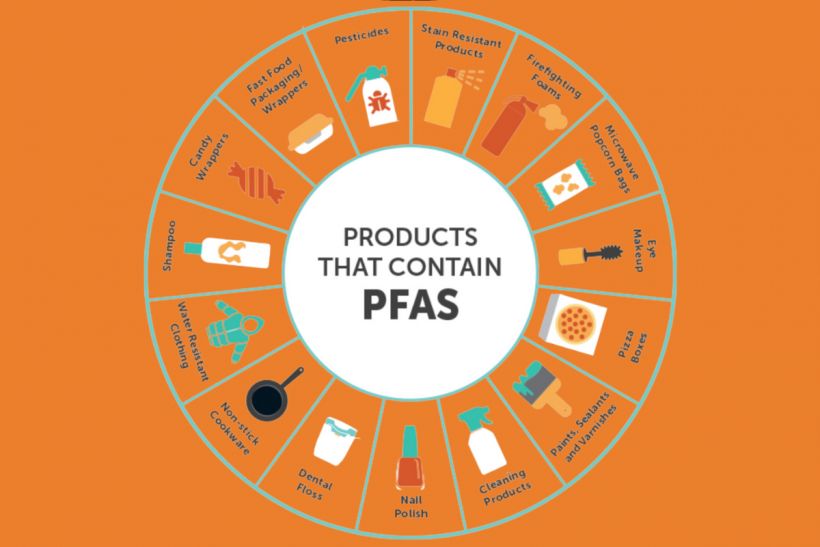
Our love affair with convenience may be having a not-so-secret toxic affair with our food. Per- and poly-fluoroalkyl substances (PFAS), also known as "forever chemicals," are lurking in our water, in many of our favorite packaged foods and even some fresh produce. These man-made marvels of repelling grease, oil, water, and heat come at a scary cost: they've been linked to a laundry list of health problems.
The Sneaky Spread of Forever Chemicals
PFAS are sneaky villains. They contaminate our food through various channels, from those convenient microwave popcorn bags and grease-resistant takeout containers leaching chemicals to nonstick cookware coated with Teflon, potentially releasing PFAS at high temperatures. They can even hitch a ride on fruits and vegetables irrigated with contaminated water or fertilized with biosolids. The result? We can't avoid them. The CDC estimates that over 97% of the U.S. population - meaning our actual human bodies - are contaminated with PFAS.
A 2023 government study even estimates that nearly 50% of the nation's tap water is contaminated with them. Last month, the EPA ruled that water providers must reduce PFAS to nearly zero - meaning public drinking water can't exceed 4 parts per trillion.
The Health Risks of Forever Chemicals
Exposure to these forever chemicals has been linked to an increased risk of cancer, liver and heart problems, a weakened immune system, and developmental problems in children. What's worse is that these chemicals are persistent, taking somewhere between four and 15 years to reduce by half in the human body (BY HALF)! They take even longer to break down in the environment.
Fighting Back Against Forever Chemicals
While eliminating PFAS completely might be a challenge, there are steps you can take to fight back. Become a label detective and avoid products with "PTFE" or other "fluoro" ingredients. Invest in stainless steel, cast iron, or ceramic cookware instead of Teflon-coated options. Consider filtering your water at home, as certain filters can remove PFAS. Although you might get a weird glance or two, bringing your own reusable container to restaurants to box up any leftovers can also help you avoid exposure.

A Brighter Future Free of Forever Chemicals
The good news? The tide is turning. The Biden administration recently designated PFOA and PFOS, two common PFAS, as hazardous substances and will require companies that produce them to report any releases into the environment and to take responsibility for cleanup.
By making informed choices and supporting stricter regulations, we can minimize our exposure to these harmful chemicals, work to protect our health and environment, and take a stand for a healthier future.






